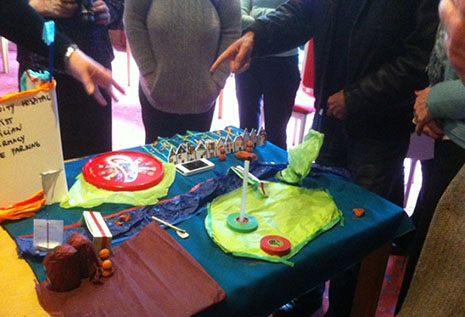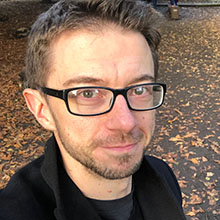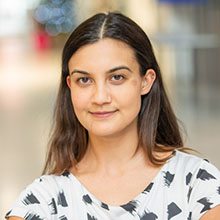Aims and Objectives
Other aims of the research project:
- Providing a deeper understanding of the impact of wider determinants on health inequality in Nottingham, to include considerations of the impact of the Covid-19 pandemic.
- Understanding the barriers to reducing inequalities within different communities from the perspective of people living within Nottingham’s diverse communities.
- Understanding the interventions that would have the greatest impact on improving the health and wellbeing of people living in Nottingham in relation on the four priority areas of the Nottingham City Joint Health and Wellbeing Strategy:
- Severe Multiple Disadvantage
- Diet and Physical Activity
- Smoking and Tobacco Control
- Financial Wellbeing
In order to achieve these aims, the project will engage the local community through cultural animation workshops and collaborate with community members to interview their fellow community members.
Project Methodology
Drawing on previous research and projects led by Professor Mihaela Kelemen, the project will make use of ‘cultural animation’ (CA). Cultural Animation is an arts-based methodology of community engagement. Participants play games and participate in art-based activities to help build trust and share ideas. This approach to peer research is well tested and researched. The approach aims to create an environment in which community members, academics and other participants co-design and co-produce shared ideas. Participants create different outputs during the workshops, including poems, songs, art installations.
Cultural Animation Workshops
The Cultural Animation workshops are being facilitated by Susan Moffat, director of New Vic Borderlines, New Vic Theatre. Sue has been collaborating with Professor Kelemen for over 10 years. They have used Cultural Animations workshops across the UK and internationally to explore many different issues such as rural health, mental health, health in the community, marketplace exclusion, and food insecurity.
Interviews
Community members will be trained by Professor Kelemen and Alysha so they are equipped to interview their fellow community members about trust and distrust as it relates to health. We will develop interview questions together during the training session. Each community member interviewee will conduct around 5 interviews with different members of their community to learn more about trust and distrust in the community as it relates to health.
Events
Community Insights Cultural Animation Workshops 2023
Free breakfast and lunch included for participants at all workshops
Tuesday 24 January, 9:30–13:30, Top Valley Community Centre, NG5 9DD
Wednesday 25 January, 10:00–14:00, Sherwood Community Centre, NG3 3FN
Tuesday 7 February, 10:00–14:00, The Salvation Army, NG2 2HN
Thursday 9 February, 10:00–14:00, The Vine Community Centre, NG7 5GZ
Friday 10 February, 10:00–14:00, All Souls Community Centre, NG7 3HF

Who's involved

Jonathan is Professor of Philosophy and Head of the School of Humanities. He has a research interest in the philosophy of trust, especially the role trust plays in helping generate improvements in wellbeing, health and education.

Mihaela is Chair in Business and Society at Nottingham University Business School, UK. Prior to joining Nottingham, she taught and researched at Keele University as Professor of Management and Public Engagement and Director of the Community Animation and Social Innovation Centre-CASIC.
Her research is underpinned by American Pragmatism and uses participatory creative methodologies of community engagement and knowledge co-production. In particular, she co-created with Sue Moffat the Cultural Animation methodology used in this Project.
Her research puts centre stage the experiences and aspirations of various marginalized stakeholders both in the UK and internationally. Her research explores a wide range of societal topics including post disaster reconstruction, food poverty, global health, volunteering, communities in crisis and marketplace exclusion in an international context.
Alysha Shivji

Alysha is a Research Fellow in the International Centre for Corporate and Social Responsibility (ICCSR) working on a collaborative research project investigating health inequalities across communities in Nottingham.
She received her PhD from the Business and Human Rights Catalyst at the Alliance Manchester Business School.
Her doctoral research focused on access to remedy for business-related human rights abuses. She conducted a case study with the Fair Food Programme and its Worker-driven Social Responsibility paradigm for her PhD and to support the Office of the High Commissioner’s Accountability and Remedy Project.
Her research interests include Business & Human Rights, global labour governance and critical management studies.
Sue Moffat
Sue is the founding director of the New Vic Borderlines at the New Vic Theatre in Staffordshire.
She works with individuals, groups and communities who exist on ‘the borders’, who are marginalised for various reasons, and as such have reduced prospects to impact on the conditions which affect them, pursue opportunities for positive change, and are deprived of the rights to celebrate as well as contribute to the wider community.
She works directly with statutory organisations including local and national government departments, and agencies as wells as NGOs who are charged with reducing isolation, disconnection and social exclusion and creating opportunities to bring disparate groups together in a meaningful and productive way.
Her documentary drama ‘All Our Daughters’ about honour-based violence and forced marriage was launched nationally from Westminster and described as saving lives by the Chief Crown Prosecutor for the UK. She co-created, with Prof Kelemen, the Cultural Animation methodology used in this project.